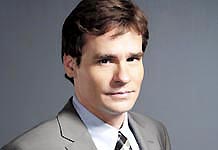 Miss Leavitt's Stars by George Johnson, 130 pages + notes
Miss Leavitt's Stars by George Johnson, 130 pages + notesThe Untold Story of the Woman Who Discovered How to Measure the Universe
Science Book Challenge; Dewey Decimal Challenge: 522; Non-fiction 5 2009
Melanie's review at theindextriousreader last year is what first brought this book to my attention. When she recently reviewed another science biography in this series, I remembered about Miss Leavitt. Will I ever catch up to Melanie? My library has a couple more I will have to look into - including Madame Curie.
There isn't a lot of information on Henrietta Swan Leavitt, and this book almost misleadingly is named for her. I think she gets a little more than her due here as a belated apology for her lack of recognition and opportunity. She was a 'computer' at Harvard in the early 1900s, observing the relative brightness of stars from photographic plates. Her job was simply to record, but she was able to make some conclusions, even developing a relationship, that then allowed the other astronomers, the men, to determine the distances of the stars. This was a starting point for the investigation of galaxies, their nearness or farness, and for the determining that the Milky Way wasn't the center, or the only one. Miss Leavitt gave the other astronomers a starting point to carry on. PhDs have been awarded for much less.
The science is slowly explained, with some good analogies to help us regular folk. The infighting, the sniping, and the downplaying of other's contributions to raise up their own: that was easy to see. Some famous names like Hubble, Einstein, and George Ellery Hale were Henrietta's contemporaries. The information on Henrietta is shockingly slim, but she wasn't around very long as she was sickly, missing many months of work, and then she died early. Whatever could be found about her family and her life seems to have been uncovered. Her boss never really acknowledged her contribution so there was little recorded of what the 'computers' did. They were thought of as recorders, not thinkers, so any ideas they had were scooped up by the bosses. It's a sad story of women's contribution at that point in history, but all too common.
I enjoyed this little look at a time in history as ideas of space and stars and galaxies were developed, changed, refigured, and then adapted. Unfortunately, egos sometimes get in the way of results, but science wins out in the end. Now, if only I had a telescope...






Looks interesting! I'm amazingly stupid about science - do you think this book would confuse someone whose brain is only capable of taking in tiny tiny pieces of science information at a time? :P
ReplyDeletejenny - there might be parts you would skim over quickly. I liked the personal stuff, the disagreements, but there is still some science, obviously. I let some just float over me, but I got some big ideas out of it, and the language was very readable.
ReplyDelete